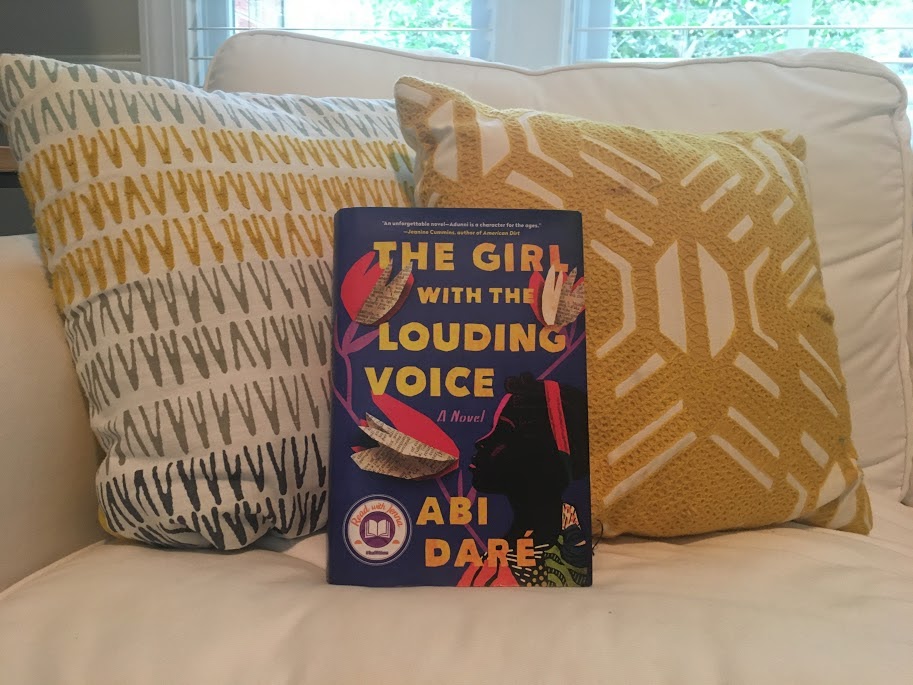Courageous, bold, illuminating: Abi Daré writes the story of a young girl, Adunni, showing the world the struggles she faces, the injustices suffered, and the triumph won.
This story begins in rural Nigeria, outside Laos. Adunni is young, only fourteen years old, when her father calls her in to inform her that she is to be married to Morufu. This is the reader’s first glimpse into the twisted, unjust society young girls live in, stooping before their fathers and not looking them in the eye, sold to another man when the money is needed. Her alcoholic father gave her to an old taxi driver as a third wife in order to support himself and her two brothers.
Adunni reminisces that night, remembering her dead mother. She pushed for her daughter’s education saying, “Your schooling is your voice, child. It will be speaking for you even if you didn’t open your mouth to talk.” Adunni loved learning, desiring to become a teacher — while her father ended her education after her mother passed, she continued to teach the children of the village.
Eventually, the day of the marriage comes. Daré’s vivid language creates a shattering image for the reader — “my eyes was just watching myself, watching as the picture of my schooling that I put on top a table in my heart was falling to the floor and scattering into small, small pieces.”
The house of her new husband is no better than her father’s. Morufu’s first wife holds immediate contempt for her, the second wife, Khadija, quietly guides her, and Morufu takes his pleasure in conquering her. Believing childbirth to seal her fate as a wife, Adunni seeks a contraceptive from Khadija.
Bearing mental and physical pain from this village, Adunni finally escapes. She flees in search of education, but that path is far from easy. Through “pregnancy-related death, an inhuman criminal justice system, child sex trafficking, grueling labor and violence both physical and psychological,” said the NY Times, she fights for a way out.
One of the most intriguing elements of The Girl with the Louding Voice is the “sassy, strong-willed narrator’s” prose, kept throughout the narrative, said the Times. Written in broken English, readers will digest and be whisked away to rural Nigeria by the end of the first sentence.
In an interview with For Colored Girls Book Club, Daré said, “I could have easily written Adunni’s voice in ‘standard English,’ but I wanted to create a character that would just not have a fascinating story, but one that would last in my mind for a long time to come.” Her distinct voice intensifies the depth of the character. “I wanted to really hear Adunni, to make her distinctive, to make myself pay attention to the words I use in describing her life’s experiences so that I could properly shed light on her circumstances. In doing so, I was forced to divorce my own authorial voice, and totally listen to her so that I could know her.”
Her voice brings distinct humor alongside pain. In narrating her own story, Adunni can make the reader both laugh and cry at her perspective. For example, when told she will make history, she simply replies, “Not his-story. My own will be called her-story” (Goodreads).
This first-person story dives into the harsh, brutal reality of “why are the women in Nigeria seem to be suffering for everything more than the men?” as Adunni says. Families marry young girls off illegally, around age fourteen — they spend their lives enslaved to men, first their fathers, then their husbands. Each situation is met with the same demands — be quiet, and do what you’re told — no matter which building they reside in. Chained to a bleak future, no hope in sight, girls have no role outside the home.
Daré reflects on this suffering and makes one strong claim: Education is the only way out. Nelson Mandela famously said, “Education is the most powerful weapon which you can use to change the world,” and Daré mimics this. Throughout the novel, Adunni fights for her education. Her mother sacrificed for it. Her father jeopardized it. Her Madam ignored it. Only her secret band of friends helped her find new opportunities in a world stuck in old rhythms.
Inspiring, empowering — women, men, old, young. All should read The Girl with the Louding Voice to educate themselves on this reality. What used to hide in darkness should be brought into the light, and this book does that. It highlights the social justice issues hidden in rural Africa and challenges the apathy towards it. In this world, people should speak out for equal opportunities, namely equal education, for all, especially the marginalized. Someone needs to give them not just a voice, but a “louding voice.”

Hi! My name is Ellie and I am the editor in chief for The Mycenaean. I play soccer at NCFC and go to The Summit Church!

Leave a Reply